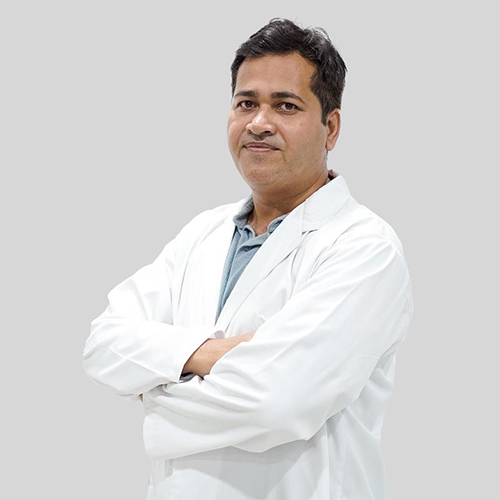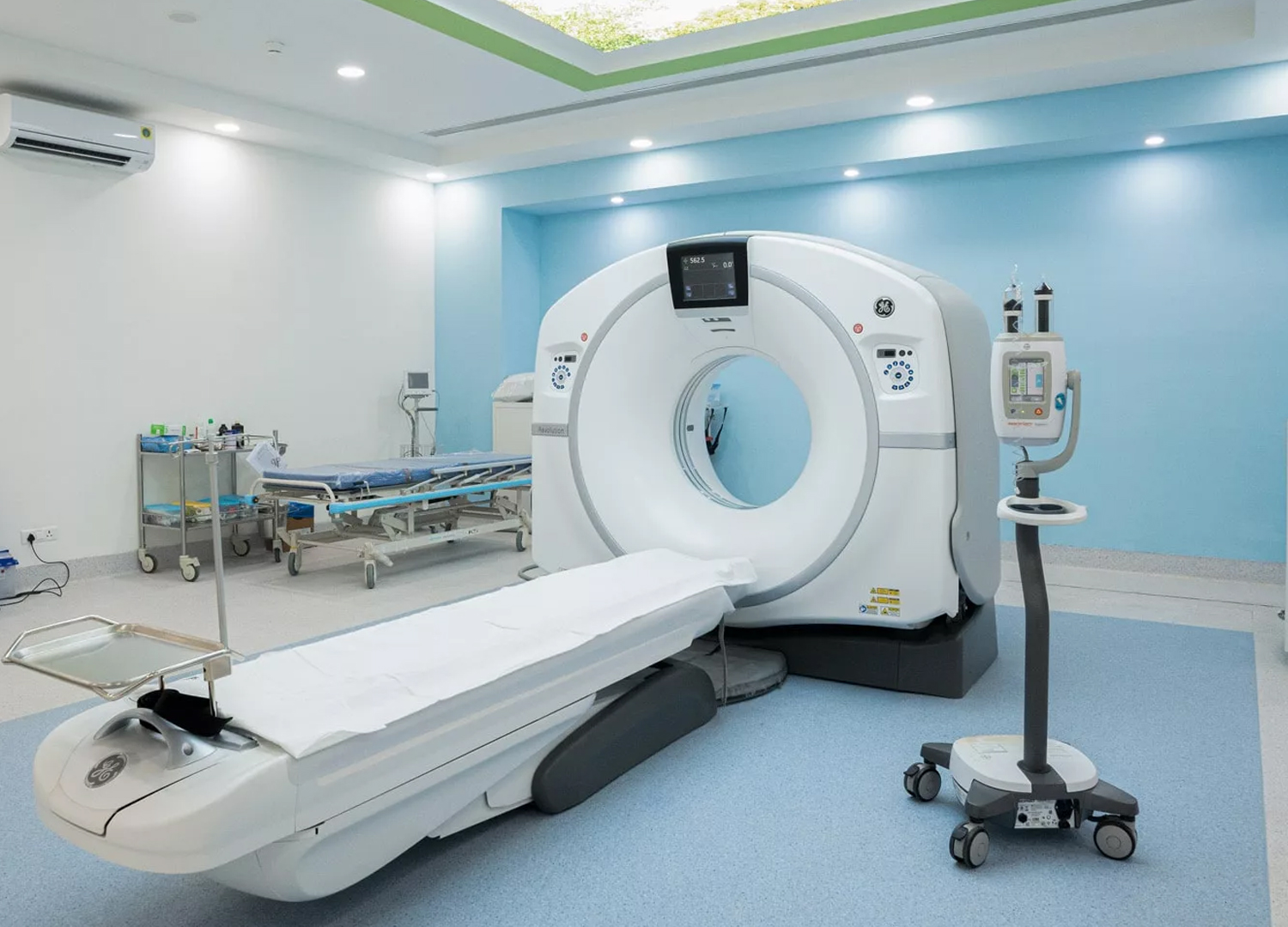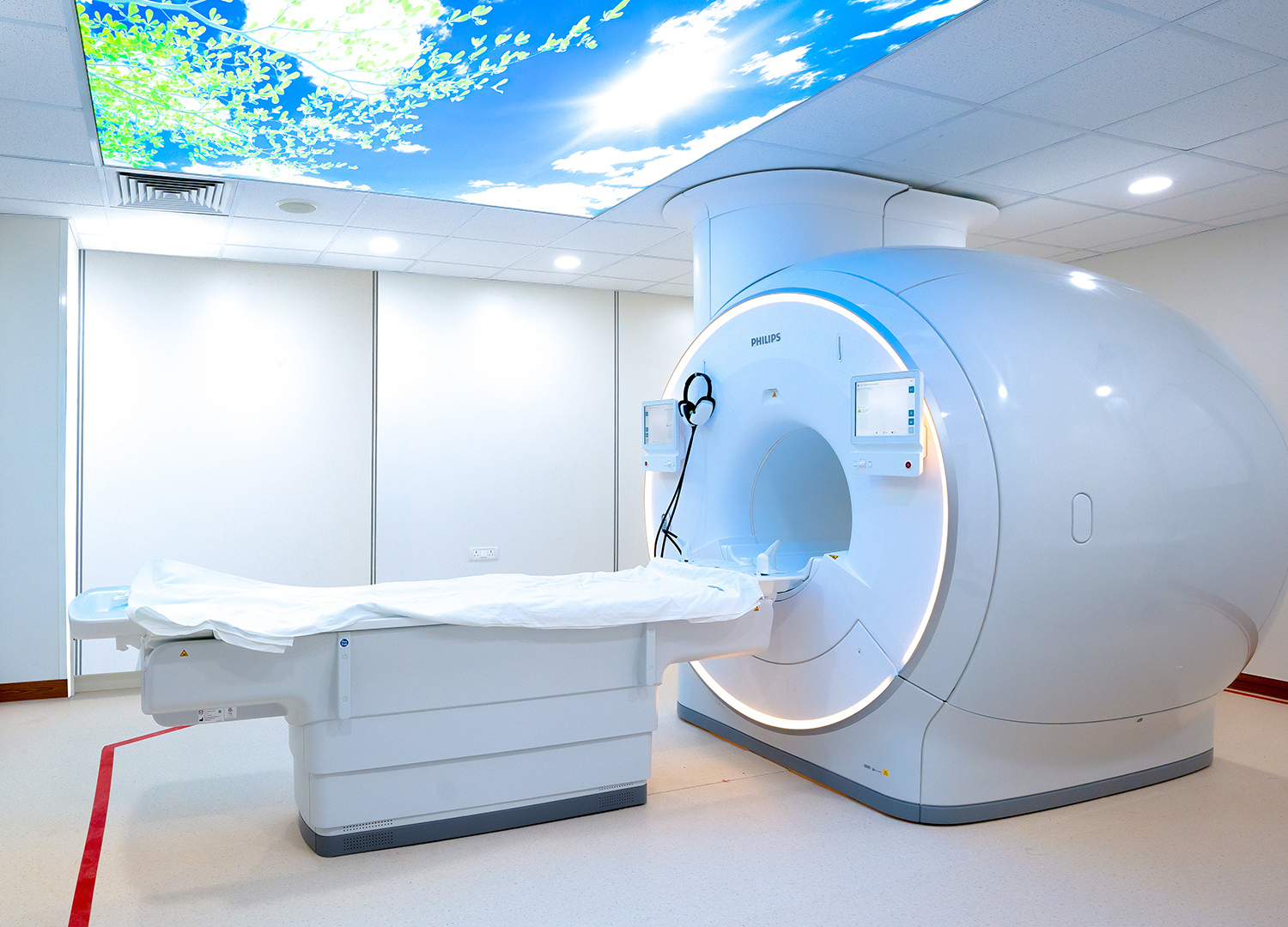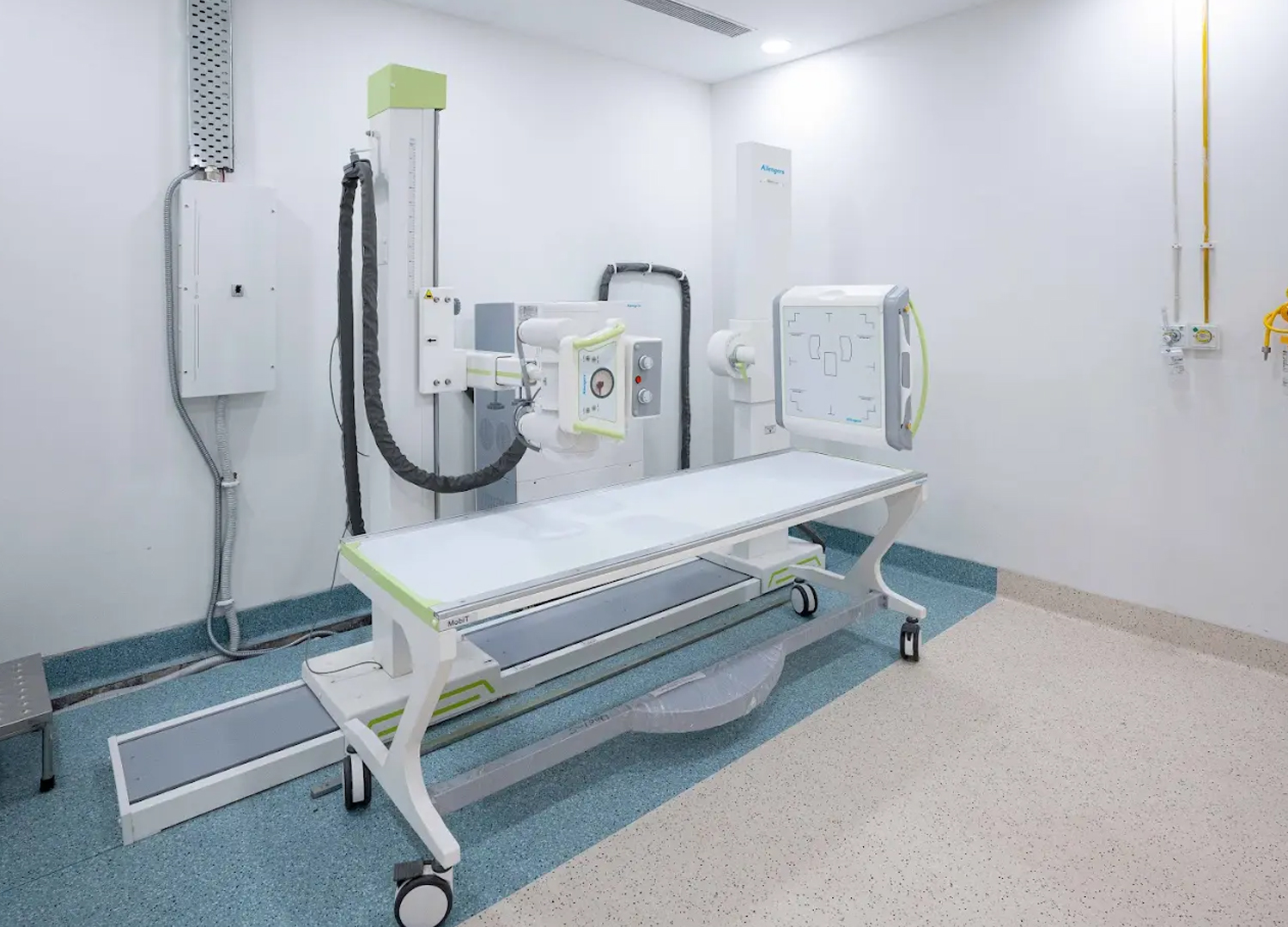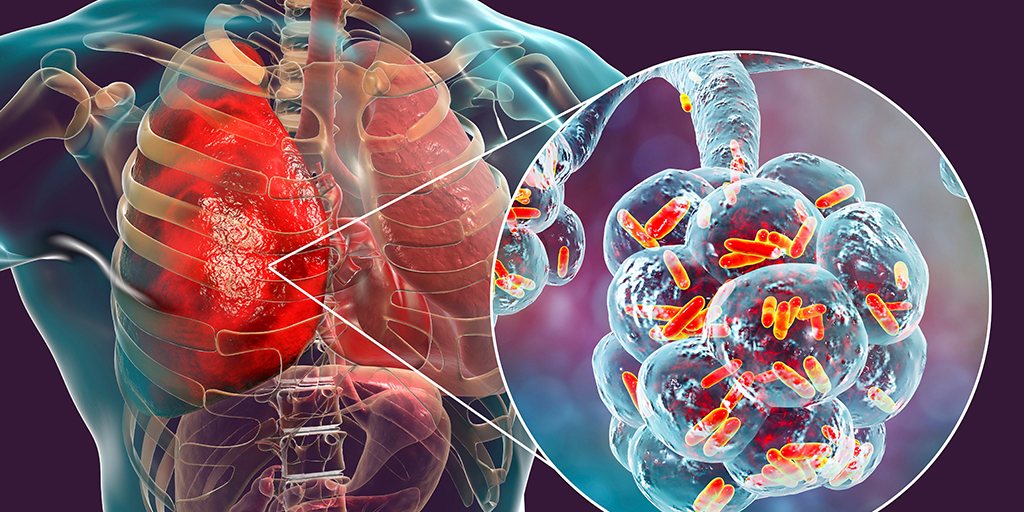At Graphic Era Hospital, our Department of Surgical Gastroenterology is dedicated to providing advanced surgical care for digestive tract disorders. With a team of highly skilled gastroenterological surgeons and cutting-edge surgical technology, we specialise in the diagnosis, treatment, and surgical management of complex gastrointestinal conditions affecting the esophagus, stomach, pancreas, liver, bile ducts, intestines, and colon. We offer a wide range of minimally invasive, laparoscopic, and open surgeries to ensure precise treatment with faster recovery times. Whether managing gastrointestinal cancers, inflammatory bowel diseases, or functional GI disorders, we focus on patient-centred care, ensuring the highest standards of safety, precision, and post-operative support.
Warning Signs of Gastrointestinal Disorders: When to See a Specialist
Gastrointestinal (GI) disorders can range from mild digestive issues to severe conditions requiring surgical intervention. Early diagnosis is crucial to prevent complications and ensure effective treatment. If you experience persistent or unusual symptoms, consulting a gastrointestinal specialist can help detect and manage underlying conditions before they worsen. Here are the key warning signs that may require surgical gastroenterology consultation:
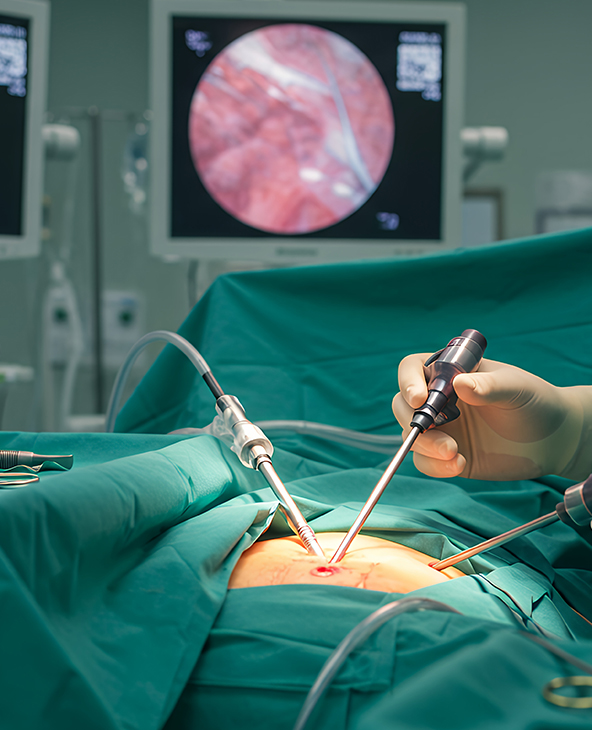
- Chronic abdominal pain or discomfort: Persistent pain, bloating, or cramps that do not resolve.
- Difficulty swallowing (dysphagia): Trouble swallowing food or liquids, often indicating an esophageal condition.
- Unexplained weight loss: Sudden, unintentional weight loss without dietary changes.
- Frequent acid reflux or heartburn: Persistent burning sensation in the chest, which may suggest GERD or esophageal damage.
- Persistent nausea or vomiting: Especially if accompanied by blood, which may indicate ulcers or GI bleeding.
- Changes in bowel habits: Chronic diarrhea, constipation, or alternating bowel patterns.
- Blood in stools or black, tarry stools: A sign of internal bleeding or colorectal issues.
- Jaundice (yellowing of skin and eyes): Suggests liver or bile duct complications.
- Lump or mass in the abdomen: May indicate a tumour or abnormal growth in the digestive tract.
- Severe bloating or fluid retention: Can be associated with liver disease or gastrointestinal blockages.
Understanding the Causes of Gastrointestinal Conditions
Gastrointestinal disorders can arise due to various factors, including lifestyle habits, infections, genetic predispositions, and chronic inflammation. Identifying the root cause of these conditions helps in choosing the most effective treatment approach and preventing disease progression. Here are the common causes of gastrointestinal disorders:
- Chronic Infections: Bacterial, viral, or parasitic infections (e.g., H. pylori, Hepatitis, or intestinal parasites) can cause GI diseases.
- Poor Diet and Lifestyle Choices: High-fat diets, excessive alcohol intake, smoking, and low fibre consumption contribute to digestive issues and obesity-related GI disorders.
- Gastroesophageal Reflux Disease (GERD): Chronic acid reflux can damage the esophagus and lead to Barrett’s esophagus or esophageal cancer.
- Inflammatory Conditions: Crohn’s disease, ulcerative colitis, and chronic pancreatitis cause persistent inflammation in the digestive tract.
- Genetic Factors: Family history of colorectal cancer, polyps, or liver diseases increases the risk of GI conditions.
- Gallbladder and Biliary Disorders: Gallstones, bile duct obstructions, or chronic biliary inflammation can affect digestion and liver function.
- Liver and Pancreatic Diseases: Conditions such as fatty liver disease, cirrhosis, and pancreatic cancer can impact digestion and metabolism.
- Gastrointestinal Tumours: Both benign and malignant growths in the esophagus, stomach, pancreas, colon, and liver may require surgical intervention.
- Autoimmune Disorders: Diseases such as Celiac disease and autoimmune hepatitis trigger immune attacks on digestive tissues.
- Long-Term Medication Use: Prolonged use of NSAIDs, steroids, and certain antibiotics can cause ulcers, acid reflux, or intestinal inflammation.
Gastrointestinal Surgeries Available at Graphic Era Hospital
At Graphic Era Hospital, we offer a comprehensive range of surgical procedures to treat complex gastrointestinal conditions. Our team of expert GI surgeons specialises in minimally invasive, laparoscopic, and open surgeries, ensuring precision, faster recovery, and reduced complications for patients requiring surgical intervention. Key gastrointestinal surgeries we offer include:
Laparoscopic Gastrointestinal Surgery
- Laparoscopic Appendectomy: Minimally invasive removal of the appendix for acute appendicitis.
- Laparoscopic Cholecystectomy: Gallbladder removal for gallstones and gallbladder disease.
- Laparoscopic CBD Exploration: Surgical treatment for common bile duct stones.
- Laparoscopic Hiatus Hernia Repair: Correcting acid reflux and GERD-related complications.
- Laparoscopic Cardio-Myotomy for Achalasia Cardia: Procedure to improve swallowing in patients with achalasia.
- Laparoscopic Splenectomy: Minimally invasive removal of the spleen.
- Laparoscopic Hernia Repair: Surgical repair of inguinal, umbilical, and incisional hernias.
Esophageal & Stomach Surgery
- Surgery for Corrosive Esophageal Stricture: Reconstruction for esophageal strictures caused by acid ingestion.
- Esophagectomy for Esophageal Cancer: Partial or total removal of the esophagus for cancer treatment.
- VATS/Thoracoscopic Surgery for Esophageal Cancer: Minimally invasive thoracic surgery for esophageal malignancies.
- Gastrectomy for Stomach Cancer: Partial or total stomach removal for gastric cancer.
Hepato-Pancreato-Biliary (HPB) Surgery
- Liver Surgery for Cysts and Liver Cancer: Hepatic resections for liver tumours and cysts.
- Gallbladder Cancer Surgery (Laparoscopic): Minimally invasive removal of cancerous gallbladders.
- Surgery for Bile Duct Injuries: Surgical correction of bile duct strictures and injuries.
- Whipple’s Procedure for Pancreatic Cancer: Complex surgery for pancreatic and duodenal tumours.
- Surgery for Chronic Pancreatitis: Surgical interventions to relieve pain and improve pancreatic function.
- Management of Acute Pancreatitis: Surgical and medical management for severe pancreatitis cases.
- Distal Pancreato-Splenectomy for Pancreatic Tumours: Removal of part of the pancreas and spleen in cases of tumours.
Colorectal Surgery
- Laparoscopic Rectopexy for Rectal Prolapse: Correcting rectal prolapse to restore bowel function.
- Surgery for Ulcerative Colitis and Crohn’s Disease: Surgical interventions for inflammatory bowel disease (IBD).
- Laparoscopic Surgery for Colon and Rectal Cancer: Minimally invasive and open surgeries for colorectal cancer.
Surgery for Portal Hypertension and Biliary Disorders
- Splenorenal Shunt Surgery: Used in patients with portal hypertension.
- Advanced Procedures for Biliary Diseases: Correcting bile duct abnormalities and strictures.
Bariatric and Metabolic Surgery
- Laparoscopic Sleeve Gastrectomy: Weight loss surgery for obesity management.
- Gastric Bypass Surgery: Procedure to aid in significant weight reduction.
Doctors Available
Why Choose Graphic Era Hospital for Surgical Gastroenterology?
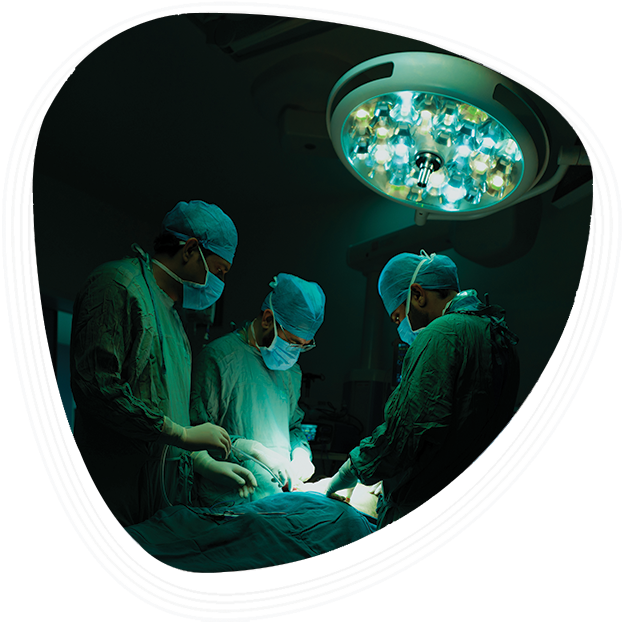
Surgical Gastroenterology Services Available at Graphic Era Hospital
At Graphic Era Hospital, our surgical gastroenterology services go beyond just performing surgeries. We offer comprehensive preoperative assessments, advanced diagnostic procedures, minimally invasive interventions, and post-surgical rehabilitation to ensure the best patient outcomes. Our specialised surgical gastroenterology services include:
Preoperative & Diagnostic Services
- Endoscopic Ultrasound (EUS) and ERCP for biliary and pancreatic conditions.
- Advanced imaging techniques such as CT, MRI, and liver elastography for pre-surgical evaluation.
- Comprehensive pre-surgical assessment to determine the best surgical approach.
Minimally Invasive & Laparoscopic Procedures
- Laparoscopic and robotic-assisted surgeries for precision and faster recovery.
- Day-care laparoscopic procedures for conditions like gallstones and hernias.
Post-Surgical Recovery & Rehabilitation
- Individualised post-surgical care plans for enhanced healing and recovery.
- Nutritional and lifestyle counselling to aid in long-term gastrointestinal health.
- Physical rehabilitation services for patients recovering from major GI surgeries.
Top Procedures
- Laparoscopic Appendectomy
- Laparoscopic Cholecystectomy
- Laparoscopic Common Bile Duct (CBD) Exploration
- Laparoscopic Hiatus Hernia Repair
- Laparoscopic Cardio-Myotomy for Achalasia Cardia
- Laparoscopic Splenectomy
- Laparoscopic Hernia Repair
- Esophagectomy for Esophageal Cancer
- Surgery for Corrosive Esophageal Stricture
- Gastric Cancer Surgery (Gastrectomy)
- Liver Resections for Tumours & Cysts
- Gallbladder Cancer Surgery (Laparoscopic & Open)
- Surgery for Bile Duct Injuries & Strictures
- Whipple’s Procedure for Pancreatic Cancer
- Distal Pancreato-Splenectomy
- Surgery for Chronic Pancreatitis
- Management of Acute Pancreatitis
- Laparoscopic Surgery for Colon & Rectal Cancer
- Lap Rectopexy for Rectal Prolapse
- Surgery for Ulcerative Colitis & Crohn’s Disease
- Splenorenal Shunt Surgery
- Laparoscopic Sleeve Gastrectomy
- Gastric Bypass Surgery
Surgical Gastroenterology Conditions Treated at Graphic Era Hospital
Advanced Diagnostics & Technology
- Offers high-resolution imaging for detailed blood vessel analysis, aiding in accurate diagnosis and treatment planning.
- Delivers advanced imaging with high resolution for clear, detailed views of soft tissues, ensuring precise diagnostics.
- Provides high-quality, detailed radiographic images for accurate diagnosis with minimal exposure to radiation.
Other Specialities
Patient Stories
Blog
Frequently Asked Questions (FAQs)
What is the difference between laparoscopic and open gastrointestinal surgery?
Laparoscopic surgery is a minimally invasive technique that uses small incisions, a camera, and specialised instruments for surgery, resulting in less pain, quicker recovery, and reduced scarring. Open surgery involves larger incisions and is typically required for complex or advanced-stage gastrointestinal conditions.
How long does it take to recover from gastrointestinal surgery?
Recovery time depends on the type of surgery and the patient’s overall health. Laparoscopic surgeries usually have a shorter recovery period (1-2 weeks), while open surgeries may require 4-6 weeks for full recovery. Post-surgery care, including dietary modifications and physical activity, plays a crucial role in healing.
Are all gastrointestinal cancers treated with surgery?
Not all GI cancers require surgery. The treatment plan depends on the type, stage, and location of cancer. While some cases require surgical removal, others may be managed with chemotherapy, radiation therapy, or targeted therapy. A multidisciplinary team at Graphic Era Hospital assesses each case individually.
Can gastrointestinal conditions be prevented?
Many gastrointestinal conditions can be prevented by maintaining a healthy lifestyle, including a balanced diet rich in fibre, regular exercise, avoiding smoking and excessive alcohol consumption, and managing stress. Routine screenings and early detection also help prevent complications.
What precautions should be taken after GI surgery?
Post-surgical care includes following a soft diet initially, avoiding strenuous activities, staying hydrated, and taking prescribed medications. Patients should also follow their surgeon’s advice on wound care, mobility, and gradual return to normal activities to ensure a smooth recovery.

